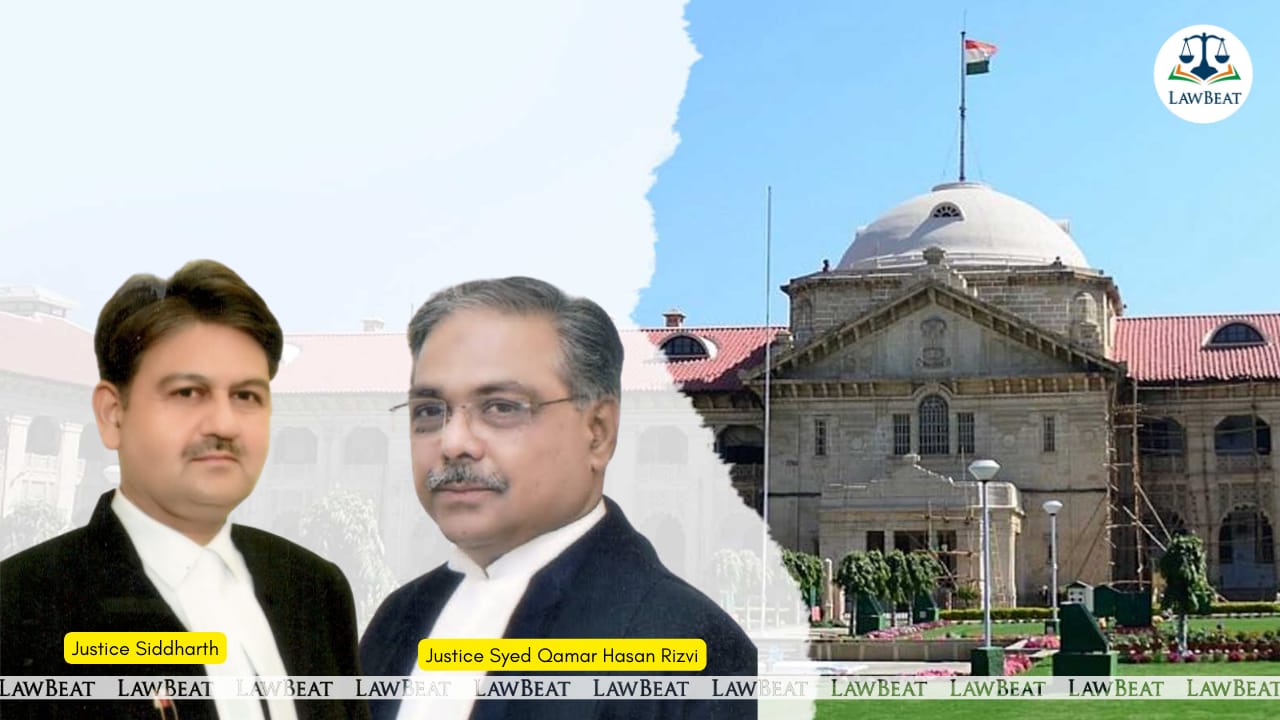"Government rarely accepts recommendations of Law Commission": Allahabad HC

The high court expressed concern that the government is yet to implement the recommendations from the Law Commission’s 277th report which recommends a statutory mechanism to compensate those wrongfully imprisoned
The Allahabad High Court recently observed that the government rarely accepts recommendations of Law Commissions, although significant public funds, time, and effort are invested in these reports.
Court highlighted that the data on record shows that only about 1/3rd of such reports have been accepted by the Government.
Further, on the broader issue of wrongful prosecution, the high court expressed concern that the government is yet to implement the recommendations from the Law Commission’s 277th report.
Notably, the report proposed a statutory mechanism to provide compensation for those wrongfully imprisoned, including financial support for the victims and accountability measures for wrongful prosecution.
Court said that the 277th Report of Law Commission ought to have been accepted by the Government since the trial courts often convict the accused in cases of heinous offences due to fear of higher courts even if its is a clear cases of acquittal.
It said, "The trial judges are fearful of wrath of the higher courts in such cases and only to save their personal reputation and carrier prospects such judgment and order of conviction are passed".
Court emphasised that in such cases, innocent individuals are subjected to trauma of unwanted incarceration in jail for a number of years before their bail applications are allowed or their criminal appeals are decided by the High Court/Supreme Court.
While highlighting that this "unfortunate side" of the system was considered by the high court in Virendra Singh and Others Vs. State of U.P and Others decided on September 12, 2024, the bench suggested that, in such cases, the State could offer financial compensation to wrongfully accused individuals.
This support would give them some relief and help them avoid being seen as a burden on their family after being cleared of the false charges against them, it opined.
"As yet the government has not implemented the recommendations of 277th report of Law Commission hence violation of Articles 14 and 21 of the Constitution of India for wrongly prosecuted and punished would continue unabated. Even in the much hyped Bhartiya Nagrik Suraksha Sanhita, 2023 there is nothing in consonance with Articles 14 and 21 of the Constitution of India for such unfortunate ones," the bench underscored.
The court observed thus while allowing a criminal appeal filed by a man who had been convicted of dowry-related murder of his wife by a trial court in 2010.
The bench of Justices Siddharth and Syed Qamar Hasan Rizvi found that the evidence presented was insufficient to sustain the conviction.
In a 27-page-long judgment, Justice Siddharth found that the key prosecution witnesses, including the victim’s family members, retracted their statements during the trial, stating instead that the woman’s death was accidental.
Initially, the prosecution's case was that the man, along with his parents, pressured his wife for dowry, ultimately leading to her death caused by fatal burns.
The trial court sentenced the man to life imprisonment under Section 302 of the Indian Penal Code (IPC) and five years under Section 316 for allegedly causing the death of a fetus, imposing a fine as well.
Upon appeal, however, the high court found serious lapses in both evidence and procedure. Notably, the witnesses testified that the woman suffered from hysteria, a condition that may have led to her accidentally setting herself on fire while cooking.
Medical reports also indicated carbon particles in her bronchi, which pointed to accidental burns rather than intentional harm. Additionally, inconsistencies were found in the prosecution's account of a cloth found in woman's mouth, which witnesses suggested was placed by bystanders to prevent flies from entering her mouth post-mortem, countering claims that it was forcibly inserted.
Court found that prosecution witnesses had not consistently supported the dowry allegations, leaving substantial doubts over the conviction.
Furthermore, it criticized the trial court’s use of Section 106 of the Indian Evidence Act to place the burden of proof on the man.
This section can shift the burden onto the accused, but only after the prosecution establishes a strong case. The high court pointed out that the trial court wrongly presumed guilt without enough direct evidence connecting the man to his wife's death.
Apart from that, the court also highlighted procedural flaws, particularly that the man was not informed when his charges were modified from dowry death to murder late in the trial.
This violated his right to a fair trial, as guaranteed under sections 216 and 217 of the Code of Criminal Procedure, which require that defendants be given an opportunity to respond to any altered charges, the high court asserted.
Therefore, conclusively, the high court allowed the man’s appeal and set aside the trial court’s conviction.
"The appellant has already undergone about 13 years of imprisonment before being released on bail on 21.10.2022 for no fault on his part for which he is entitled to heavy compensation from State, but due lack of statutory framework, we are helpless," the court, however, noted.
Case Title: Upendra @ Balveer Vs. State of U.P.
